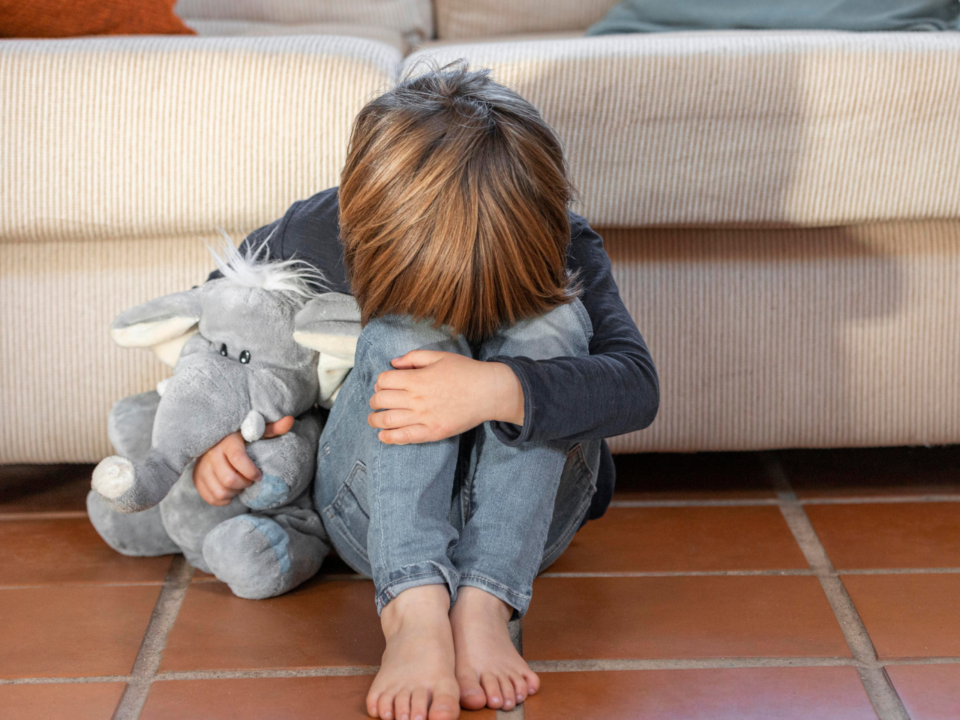
Where Did the Sun Go? How to Navigate Seasonal Depression with Your Kids
As the days grow shorter and darker, your child or teen may begin to feel sad, disinterested in playtime or activities, and moody. While the change in daylight savings causes a minor inconvenience for some, others may experience a more serious case of the winter blues known as Seasonal Affective Disorder, or SAD.
What is Seasonal Affective Disorder (SAD)?
Seasonal Affective Disorder is a type of depression that typically occurs in late fall and lasts throughout early spring. Often, SAD accompanies major shifts in seasonal patterns and daylight hours, when the sun sets earlier. During this time, you may start to notice your child becoming sluggish, easily irritable, losing interest in activities or sports, and having trouble concentrating. Typically, individuals with SAD have symptoms of depression in the late fall throughout winter and experience remission in late spring and summer.
What Causes Seasonal Affective Disorder (SAD)?
While there is no clear cause of seasonal depression, it is thought to be caused by a disruption with the production of serotonin and melatonin in the brain due to reduced sunlight. These chemicals can fluctuate based on the amount of sunlight you receive. When it’s sunny, the brain makes more serotonin. High levels of serotonin boost feelings of happiness and well-being. Low levels can lead to depression and other mental health disorders. Also, when it’s dark, the brain makes more melatonin. Excess levels of this chemical cause you to feel sleepy and have less energy. Hence, why the dark, gloomy skies can leave you feeling depleted and ready to hit the hay at 5 p.m.
What Symptoms Should I Look For?
As with typical depression, SAD can lead to:
- Low energy. Your child may be tired or lack energy.
- Changes in mood. Your child or teen may be sad, cranky, irritable and more likely to get upset or cry easily.
- Lack of enjoyment. Children and teens with SAD may not be interested in participating in their regular activities or sports.
- Changes in sleep patterns. Children and teens may have trouble sleeping and waking up for school in the morning.
- Changes in appetite. Kids and teens may crave sugary snacks, chips or other unhealthy options. This can lead to weight gain. Or, they may not be hungry at all.
- Negative thinking. Kids and teens may be more sensitive to criticism. They may complain more or blame others.
- Trouble focusing. Your child or teen may find it hard to focus in school, which can affect school performance and grades.
- Suicidal thoughts. Someone with SAD may have thoughts of death, hurting themselves, or hurting others.
Although you can’t make the sun set later, there are a few things you can do to help your children get through the winter blues.
How to Help Your Children Navigate Seasonal Affective Disorder (SAD)
If your child or teen is diagnosed with SAD, the best thing you can do is talk about it. Get their doctor involved and start the treatment process to find out what works best for your child. You also can:
- Help organize homework. Maybe even inform their teacher about the situation.
- Encourage your child to get plenty of exercise, especially outdoors.
- Spend time together doing things that don’t require much energy, like playing board games or watching a movie.
- Have your child go to bed at a reasonable time so they can be well-rested for school.
- Limit screen time and blue light exposure.
- Try to serve whole foods like whole grains, vegetables, fruits, nuts and healthy fats.
When Should I Call the Doctor?
If your child’s seasonal depression starts interfering with school performance, friendships, extracurriculars or sports, it may be time to call their doctor. While changing your child’s diet and helping them improve their sleep can help alleviate the symptoms of seasonal depression, your child’s doctor can help point you in the right direction if medicine or therapy is necessary.
In the meantime, spend time with your child—listen to them and enjoy activities together. While the winter is here to stay, the blues might just go away.





